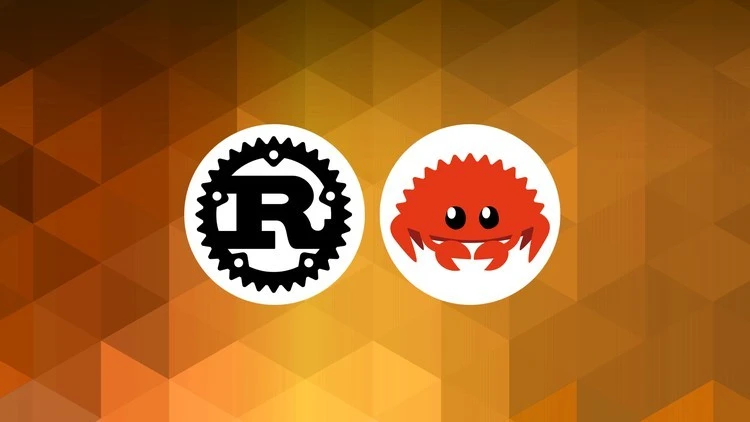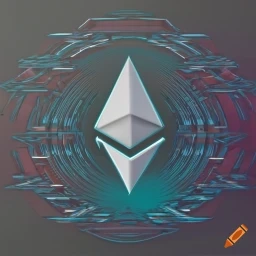
This website uses cookies
We use Cookies to ensure better performance, recognize your repeat visits and preferences, as well as to measure the effectiveness of campaigns and analyze traffic. For these reasons, we may share your site usage data with our analytics partners. Please, view our Cookie Policy to learn more about Cookies. By clicking «Allow all cookies», you consent to the use of ALL Cookies unless you disable them at any time.
Rust, a systems programming language known for its safety guarantees, has been gaining traction in the world of blockchain and smart contract development. Its unique features make it a promising choice for developers looking to build reliable and efficient smart contracts.
Why Rust?
Memory Safety: Rust's ownership system ensures that there are no null pointer dereferences, dangling pointers, or buffer overflows, common vulnerabilities in smart contract development.
Concurrency: Rust's built-in concurrency support allows for efficient execution of smart contracts, especially when dealing with multiple transactions.
Performance: Being a compiled language, Rust offers performance comparable to C and C++, ensuring fast execution of smart contracts.
The Rust Advantage
Type System: Rust's strong and static type system catches many errors at compile-time, reducing the chances of runtime errors, which can be catastrophic in a blockchain environment where transactions are immutable.
Immutable By Default: In Rust, all variables are immutable by default. This aligns well with the principles of blockchain where data, once written, should not be altered.
Pattern Matching: Rust's pattern matching is a powerful tool, especially when dealing with different types of transaction requests in smart contracts.
Extensive Standard Library: Rust's standard library provides a plethora of functionalities, reducing the need for external dependencies. This is crucial for smart contract development where minimizing dependencies can lead to more secure code.
Rust's Ecosystem for Blockchain
The Rust ecosystem has been rapidly growing with libraries and frameworks tailored for blockchain development:
Wasm: Rust has first-class support for WebAssembly (Wasm), a binary instruction format that allows code to run in web browsers. Many modern blockchains use Wasm for smart contract execution, making Rust a natural fit.
Cargo and Crates: Rust's package manager, Cargo, and its package registry, Crates.io, offer a wide range of libraries for cryptography, data serialization, and other functionalities essential for blockchain.
Community Support: The Rust community is known for its helpfulness and active participation. There are numerous forums, chat groups, and resources available for developers venturing into blockchain with Rust.
Rust in Blockchain
Several blockchain platforms have started to support or even recommend Rust for smart contract development:
Parity's Substrate: A framework that allows developers to build their blockchains, has a native support for Rust.
NEAR Protocol: Offers a Rust SDK for building smart contracts.
Solana: Encourages the use of Rust for developing on its platform.
Codebase Example
Let's look at a simple smart contract written in Rust. This contract ERC20 standard migrated to Solana:
use solana_program::{
account_info::{next_account_info, AccountInfo},
entrypoint,
entrypoint::ProgramResult,
msg,
program_error::ProgramError,
pubkey::Pubkey,
program_pack::Pack,
};
pub struct ERC20Token {
pub total_supply: u64,
pub balances: std::collections::HashMap<Pubkey, u64>,
pub allowances: std::collections::HashMap<(Pubkey, Pubkey), u64>,
}
entrypoint!(process_instruction);
fn process_instruction(
program_id: &Pubkey,
accounts: &[AccountInfo],
instruction_data: &[u8],
) -> ProgramResult {
let accounts_iter = &mut accounts.iter();
let account = next_account_info(accounts_iter)?;
if !account.is_signer {
return Err(ProgramError::MissingRequiredSignature);
}
let mut erc20_token = ERC20Token::unpack_from_slice(&account.data.borrow())?;
match instruction_data[0] {
0 => {
// Transfer
let to_account = next_account_info(accounts_iter)?;
let amount = u64::from_le_bytes(instruction_data[1..9].try_into().unwrap());
let sender_key = *account.key;
let receiver_key = *to_account.key;
if let Some(sender_balance) = erc20_token.balances.get_mut(&sender_key) {
if *sender_balance < amount {
return Err(ProgramError::InsufficientFunds);
}
*sender_balance -= amount;
}
*erc20_token.balances.entry(receiver_key).or_insert(0) += amount;
}
1 => {
// Approve
let spender_account = next_account_info(accounts_iter)?;
let amount = u64::from_le_bytes(instruction_data[1..9].try_into().unwrap());
let owner_key = *account.key;
let spender_key = *spender_account.key;
erc20_token.allowances.insert((owner_key, spender_key), amount);
}
2 => {
// Transfer from
let owner_account = next_account_info(accounts_iter)?;
let to_account = next_account_info(accounts_iter)?;
let amount = u64::from_le_bytes(instruction_data[1..9].try_into().unwrap());
let owner_key = *owner_account.key;
let spender_key = *account.key;
let receiver_key = *to_account.key;
if let Some(allowed_amount) = erc20_token.allowances.get(&(owner_key, spender_key)) {
if *allowed_amount < amount {
return Err(ProgramError::InsufficientFunds);
}
erc20_token.allowances.insert((owner_key, spender_key), allowed_amount - amount);
} else {
return Err(ProgramError::InsufficientFunds);
}
if let Some(owner_balance) = erc20_token.balances.get_mut(&owner_key) {
if *owner_balance < amount {
return Err(ProgramError::InsufficientFunds);
}
*owner_balance -= amount;
}
*erc20_token.balances.entry(receiver_key).or_insert(0) += amount;
}
_ => {
msg!("Invalid instruction");
return Err(ProgramError::InvalidInstructionData);
}
}
ERC20Token::pack(erc20_token, &mut account.data.borrow_mut())?;
Ok(())
}
impl ERC20Token {
fn unpack_from_slice(src: &[u8]) -> Result<Self, ProgramError> {
// Unpack the data from the slice
}
fn pack(src: Self, dst: &mut [u8]) -> Result<(), ProgramError> {
// Pack the data into the slice
}
}Challenges and Considerations
While Rust offers many advantages, it's essential to understand its learning curve. Rust's ownership and borrowing system, while ensuring memory safety, can be challenging for newcomers. However, the investment in learning can pay dividends in the form of secure and efficient smart contracts.
Moreover, while Rust provides many safety guarantees, smart contract developers must still be wary of logic errors, reentrancy attacks, and other vulnerabilities specific to blockchain.
Conclusion
As the blockchain landscape evolves, the tools and languages used for development are also rapidly changing. Rust, with its unique features and growing ecosystem, is poised to become a dominant force in the world of smart contract development. Whether you're a seasoned blockchain developer or just starting, Rust offers a compelling toolkit to build the decentralized future.



